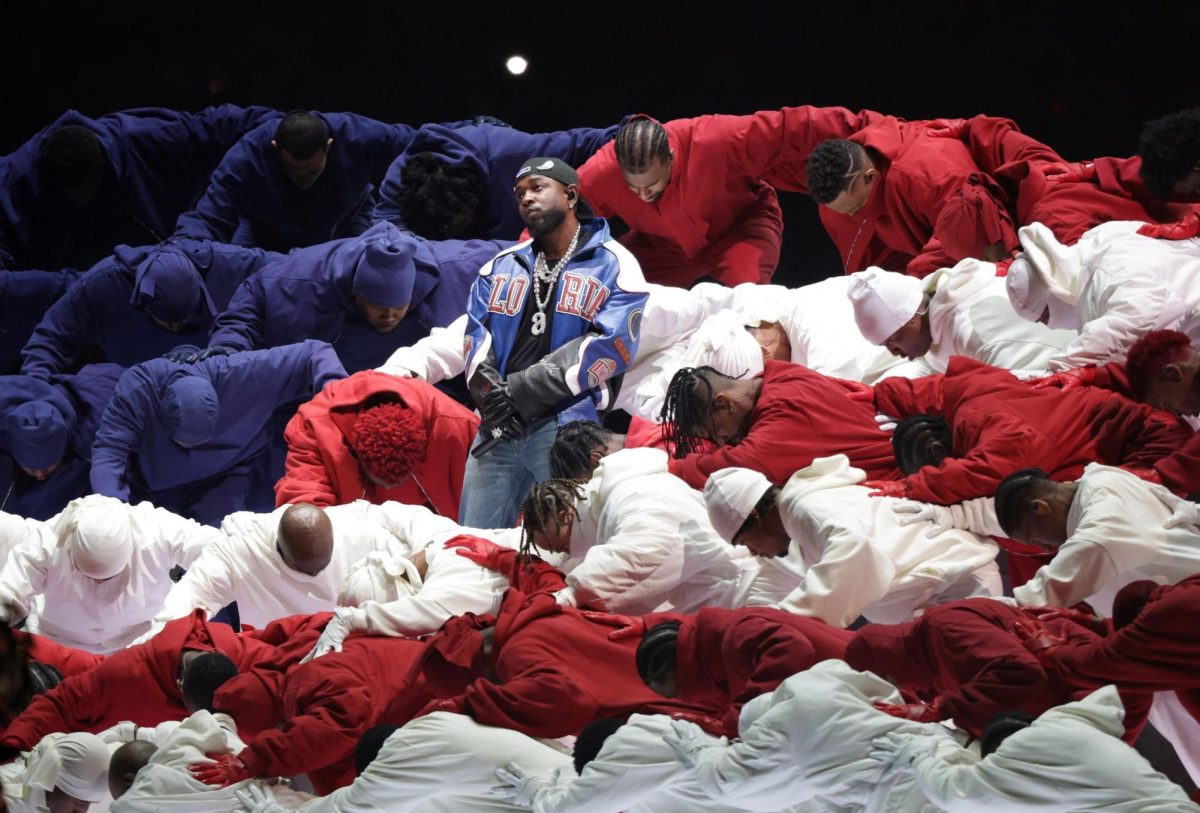The Caribbean Student Organization in celebration of 20-years is revealed to have been conceptualized after a philosophical discussion among the founding cohorts—a discussion around the principle that the Caribbean high school curriculum is very rigorous and prepares students better to handle the academic rigor of university. They concluded that the theory could be tested to determine if the formula to the academic success for Caribbean students at tertiary level education would hold at MSU.
Randy Glean and Terrance Innis met each other in 1988, said Innis. He sat reminiscent during his interview, recalling their initial encounter.
“Randy heard my voice and recognized that I was a Caribbean man by my accent,” said Innis, founding father of Caribbean Student Organization.
They were the only two West Indians at MSU at that time. The both continue to reside in Wichita Falls, and to date, Glean and Innis are still very close comrades and Alpha Phi Alpha Fraternity brothers.
As Glean graduated in 1991, he reached out to some friends in Grenada, facilitating the enrollment of his teaching mate Trevor Wildman and his wife Arlette in 1991, then his old soccer coach Carlos Thomas and his wife Gillian, in January 1993.
“This was a pre-cursor to the [establishment of the] organization,” Innis said.
Randy Glean, founding father of CSO said, “though this initial group of Caribbean students performed extremely well academically, it was the stand out performance of Trevor Wildman, whom Jesse Rogers called, ‘the best chemistry student he had ever had,’ that set the bar of academic dominance at the University for Caribbean Students. Their academic excellence also set the life to the idea of the program.”
Formation
Glean said while he accepts that he started the Caribbean outreach and launched the Caribbean Recruiting Program on campus, he does not want history to credit him for CSO.
The organization was formed after the first two cohorts of students arrived in the fall of 1993 and the spring of 1994 from Antigua, Dominica, Grenada and St. Vincent. With a total presence of almost 20, Carlos Thomas and Howie Prince of St. Vincent formulated the idea of a Caribbean Organization.
“The true originators or the idea of an organization are Carlos Thomas and Howie Prince,” he said. “I was merely the first one out the gate and the right person to shepherd the organization through its formative years.”
Glean said his commitment was more purely to advance the academic opportunities for the Caribbean than all the things the organization represents. He claims to be less than fully versed in all aspects of Caribbean culture and often saw the organization as the “social and cultural arm” of his outreach program.
After failing to draw up a constitution, Glean drafted the entire CSO constitution and brought it to the launching meeting for validation. The founders ratified the constitution on Martin Luther King Day, Jan.17, 1994, and elected Trevor Wildman as the first president.
“We have students with the capability but limited ability to gain education,” said Innis.
The recruitment program reaches out to the Organization of Eastern Caribbean States comprised of ; Antigua and Barbuda, Commonwealth of Dominica, Grenada, Montserrat, St Kitts and Nevis, St. Lucia and St Vincent and the Grenadines. Anguilla and the British Virgin Islands are associate members of the OECS. During the last 20 years, all of these territories plus Trinidad, Guyana, Barbados, The Bahamas and Jamaica have had representatives in the organization.
“Faculty and staff have come to expect great things of the Caribbean Student Organization because of the precedent set by the founding cohorts and maintained by the students over the past 20 years,” said Glean.
Innis said, “We have had top honors and the early years at most graduations making for a win/win situation for the student and the university.”
The Caribbean program was replicated in a dozen other universities, all inspired by invitations from Glean to join him on recruiting tours to the region. He estimates that in addition to the almost 1,100 who have come to Midwestern, there are an additional 800 that have joined the other institutions that emulated the program.
To date more than 700 students have graduated from the program since 1995. Almost 90 percent of students have graduated on their expected graduation dates with approximately 40 percent graduating with honors.
“I graduated with my master’s in political science,” said Innis
The organization has also produced several doctorates, master’s degrees, accountants, engineers, entrepreneurs, teachers, doctors, lawyers, politicians, nurses, social workers, statisticians, and other professionals.
Glean, the director of International Services at MSU, Alefia Paris-Toulon, the director of federal and state programs at Wichita Falls Independent School District, and Innis is a Spanish teacher at WFISD.
“The Caribbean program is a transformative juncture in MSU history as the university’s overall international profile has grown to almost 10 percent of the enrollment,” Glean said.
Merit Scholarship
While their success is a reflection of their pursuit at better lives, they said there were challenges along the way.
Paris-Toulon a graduate with a master’s in education and education leadership, “I was not the traditional student in terms of age… I was almost in my 30s when I came to study.”
Paris-Toulon said if a student takes a loan it is difficult having someone at home to pay the interest while they are away studying. She continued to say, that compared to the U.S. the Caribbean does not have that financial aid system where students can apply for grants or loans to pay for their education straight out of high school.
“Financial reasons hamper many persons from pursuing tertiary education.”
However, Caribbean nationals enter with a merit scholarship which carries a competitive waiver.
Paris-Toulon said that the benefit of the competitive waiver was the only way she could have afforded her education.
The competitive waiver allows students to pay in-state tuition in addition to earning a $1,000 academic scholarship. Several universities now are actively recruiting Caribbean students following Midwestern’s lead.
Another of the organization’s constitutional purposes is to create Caribbean cultural, social, political and historical awareness. This protocol is directed toward developing the student with full cultural awareness. We exist in a global, multicultural society therefore diversity in higher education provides an educational advantage for all students, both personally and intellectually.
The University has nine multicultural organizations of which CSO is the longest standing.
Volunteer Work
One of the CSO’s mantra’s that quoted to new students when they are welcomed to the organization is that of Mahatma Gandhi, “be the change you want to see in the world.”
CSO is known for its volunteer and fundraising efforts.
Paris-Toulon said, “If I need to be successful in a new environment, I have to be willing to learn the culture of the land. It is important to understand where you are and what it takes to be successful beyond the classroom.”
CSO provides opportunities for their members to extend throughout the community.
“In my days, our volunteer work was to clean the Administrative building,” said Innis.
The Organizations has expanded its volunteer efforts to three charity groups in Wichita namely; Patsy’s house Children’s Advocacy Center, Wichita Falls Faith Missions and the WFISD.
Caribfest/ CSO Today
CSO’s purpose is to bring about a closer understanding both culturally and academically between American and Caribbean cultures by interacting with the Wichita Falls community.
The organization has expanded to include additional committees aside from its eight standing committees to facilitate annual events such Expressions and Caribfest.
Caribfest chair, Rhea Durand, senior in chemistry, said, “Caribfest is for the community and with bringing Caribbean awareness, we hope that this will drive prospective eyes towards MSU and show the community that MSU is filled with diversity and life.”
These ad-hoc committees allow for the students to step up and contribute toward the Caribbean Student Organization’s activities.
Durand said, “I started off singing for the organization and then branched off and did several other things but serving CSO comes naturally.”
CSO’s members encourage its students to find their niche and contribute their input, talents and commitment into its activities to build the organization and to make a difference in the community.
“The organization helped me tremendously when I moved to Wichita Falls and continues to help me so giving back in the form of leadership seems incomparable,” Durand said .
When Toulon was an undergraduate student she said, she had been very active in the food preparation, which is an example of an ad-hoc, committee for Caribfest and at any event which needed her services.
Paris-Toulon said one of her mantras in life, is an excerpt from the bible, to whom much is given much is required.
“You have to rise above yourself and not let the human aspect let you fade away,” She said, “I learned multitasking skills and time management.”
CSO represent a student structure which provided new students with hospitality, a strong social structure and support system which makes the transitions for incoming students easier. Coupled with the orientation program offered by the university, this creates for a unique model that is not seen across the United States.
Rolanda Ferdinand, junior in business said,”CSO is an organization which makes you feel like you are back home in the Caribbean.”
CSO also has active local alumni group which was formed in 2005 against the backdrop of wanting to make a continued contribution but not be direct involved in the everyday transactions of the undergraduate organization.
“In life you have to subscribe to something bigger than you,” said Paris- Toulon.
There have been joint efforts from CSO’s undergraduate and alumni such as the annual May show, which is put on in celebration of the graduating class and is open to the community. This year, the May 10 show will features the Red Hot Flames from Antigua.
Paris- Toulon said she believes that one should extend themselves beyond their immediate surroundings.
The local alumna sees it as important to maintain their presence in the Caribbean Student Organization because of the benefits that come in the long term for future members.
“CSO is an institution—an indelible positive mark on Midwestern’s existence that hopefully will endure,” Glean said. “This is our legacy. We changed a corner of the world forever.”
















